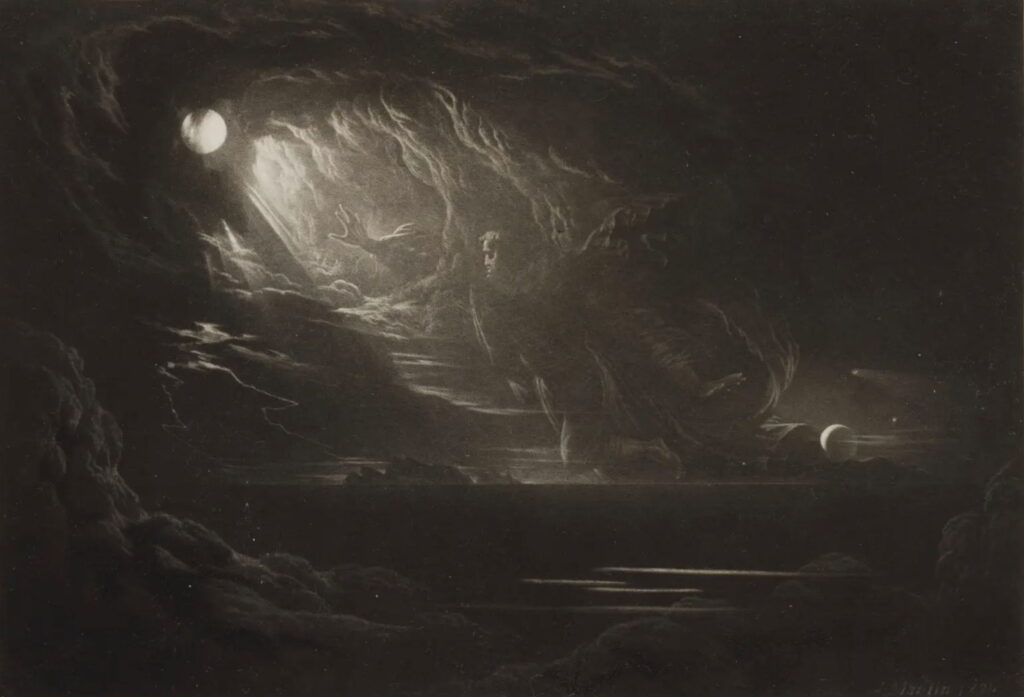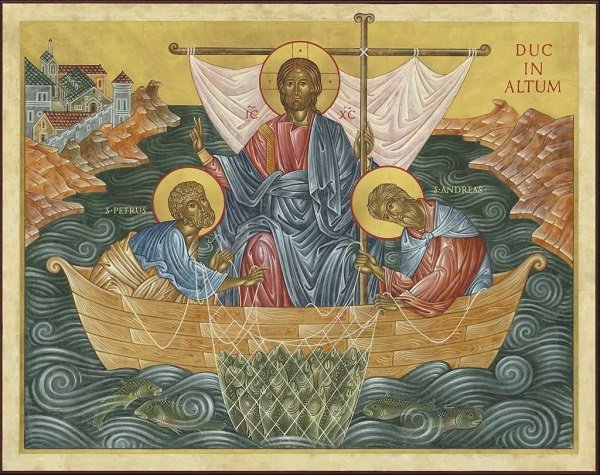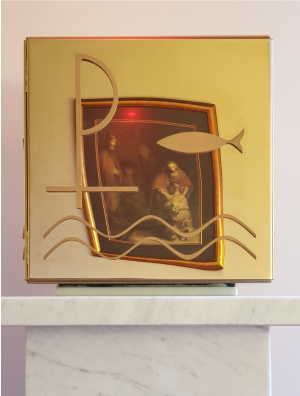Walk into the mind of an ancient Babylonian, and you will find a universe not unlike the mythological stage of a Greek tragedy: gods at war, gods begetting other gods, gods enslaving men. The heavens and the earth themselves were often imagined as the leftovers of some cosmic butcher shop, the dismembered carcass of a slain monster, the accidental spillage of divine blood. Humanity? A side-project at best, an inconvenience at worst, designed to save the gods from menial labour.
Now, hold this dim and chaotic backdrop in your mind, and then read, slowly, the first chapter of Genesis: “In the beginning, God created the heavens and the earth.” Already, the contrast is enough to turn a world upside down. No genealogy of gods, no prologue of cosmic battle. Just one sovereign voice, without rival, without peer, without beginning, calling all things into existence.
The shock of this cannot be overstated. For in that opening line, Israel was declaring that behind the beauty and terror of the world there was not accident, violence, or chance, but one rational and personal will.
Creation Without Rival
Most ancient peoples assumed that if the world existed, it must have been birthed in strife. Order was what you got when one god happened to win the fight and pinned down chaos for a season. Genesis does not begin with battle but with speech: “And God said…” The very fabric of reality is spoken into being, not hammered out on the anvil of war.
This was an earthquake for human thought. It suggested that the order of the universe is not precarious, not subject to the mood swings of capricious gods, but grounded in the faithfulness of one Creator. Today we take this for granted, but it was the seedbed out of which both science and morality would eventually grow. If reality is rationally spoken, then it can be rationally studied. If creation is ordered by God’s will, then it is good to trust that order rather than fear it.
The World Is Good
At each stage the refrain rings out: “And God saw that it was good.” In pagan myths, matter was often suspect, chaotic, dirty, a hindrance to the divine. At best it was neutral; at worst, the shattered corpse of a slain goddess. Genesis alone dares to call the whole of it “good.”
Think of what this means. Your body is good, not a prison. The soil beneath your feet is good, not cursed by nature. The stars above are good, not tyrants of fate. By declaring this, Genesis dethroned a thousand idols in a single stroke. And by the same token it gave humanity permission – no, a mandate, to rejoice in the created order: to till gardens, compose songs, and study the heavens, all without bowing down to them.
The Cosmos De-Mythologised
The sun and moon, objects of worship in half the world, are reduced to “the greater light” and “the lesser light.” Sea-monsters, symbols of divine terror, are mere creatures, swimming obediently in the watery deep. What every other culture adored as gods, Genesis dismisses as furniture.
This is not to say the world is stripped of wonder. Far from it. But the wonder is redirected: not to the things themselves but to the One who made them. The ancients trembled before the stars as though bound by them. Genesis invites us to look at those same stars and hear God whisper: “I made them also.”
Humanity Crowned with Dignity
If the world is good, humanity in Genesis is something greater still: made in the “image of God.” No other creation story grants man this dignity. In the Enuma Elish, men are formed from the blood of a defeated god in order to carry trays of food for the divine banquet. In Egyptian thought, Pharaoh alone bore something like the “image” of divinity, the rest of the population mere slaves. But in Genesis the royal title is distributed to all: male and female, bond and free.
This teaching did not only elevate humanity; it levelled it. For if all bear the image, then none may lord it over the rest as if only kings carried heaven’s spark. We forget how revolutionary this was. In much of the world still, the majority are treated as expendable, mere cogs in a cosmic cycle. Genesis shouts: “No! Every man and woman reflects God Himself.”
Time With a Goal
Here lies another silent revolution. The creation week is not a cyclical dance but a progression, with a beginning and an end. It culminates in rest, the Sabbath, not in endless repetition. Ancient religions were trapped in cycles: the wheel of reincarnation, the seasonal myths of dying and rising gods, the eternal return of chaos. Genesis instead presents history as linear, going somewhere, with God Himself guiding its story.
This truth broke humanity out of the prison of fatalism. If time is going somewhere, then our choices matter. If creation moves from beginning to Sabbath, then there is a destiny as well as an origin. The Hebrews could look forward not merely back; and humanity could dare to hope.
Transcendence and Nearness
Here again Genesis stands apart. The God who speaks the universe into existence is utterly distinct from it, no river god, no sun deity, no animating world-soul. And yet this same God stoops to plant a garden, walk with man in the cool of the day, breathe life into dust. He is high above all, yet nearer than breath.
Other cultures might give you a high god, remote, silent, uninvolved. Or they might give you a household god, nearby but small and ridiculous. Genesis gives you both transcendence and intimacy in one: the Almighty who is also the Friend.
No Divine Romance, No Fate
The gods of the nations were forever entangled in their own dramas: lust, jealousy, betrayal. The fates too often ruled even over them. Genesis offers no such picture. The Creator acts in absolute freedom. He is not compelled by fate, nor does He stumble into creation by passion or accident. He wills, and it is.
The implications are massive. If God is free, then His relationship with humanity is not one of necessity but of love. If He created us, it was not because He was lonely, nor because He needed servants, but because He desired to share His goodness. Creation is not divine overflow but divine gift.
From “Something” to “Nothing”
The text itself simply states that God “created.” Later Jewish and Christian reflection drew the obvious conclusion: not out of some pre-existent matter, not out of a slain monster, but out of nothing at all. This doctrine of creatio ex nihilo crowns the Genesis vision: that everything depends on God, and God depends on nothing.
For the ancients, matter was eternal. For the modern atheist, matter is eternal. But Genesis insists it is not. It is contingent, summoned by God’s word and more than that, sustained at this very moment by his will. Suddenly the universe is no longer the necessary backdrop for life, it is itself as fragile and dependent as we are. The only absolute is God.
Why This Mattered Then (and Still Does)
To us moderns, dulled by centuries of biblical influence, these truths scarcely shock. We take it as obvious that there is one God, that nature is not divine, that people are equal in dignity, that history moves forward. We breathe these assumptions as air. But in the ancient world, these were as strange as declaring the earth round in a world that “knew” it flat.
And if we look eastward, to the religions still trapped in the wheel of reincarnation, or to philosophies that dissolve the self into the sea of being, we see just how rare the Genesis vision remains. For them, the goal is escape, from matter, from individuality, from history itself. Genesis dares to affirm creation, to bless history, to hallow the body, to promise a destiny.
The Greater Epiphany
But Genesis is not the last word. It is the prologue to a far greater drama. For the same Word who said “Let there be light” would one day say, “I am the Light of the world.” The same God who walked in the garden would walk again among us, this time clothed in our own flesh. The order, goodness, dignity, and purpose announced in Genesis were always meant to point beyond themselves, to a new creation, a new Sabbath, a new Adam.
The world shook once when Moses wrote, “In the beginning, God created the heavens and the earth.” It shook again when John wrote, “In the beginning was the Word… and the Word became flesh.”
And perhaps it is only by grasping the first upheaval that we can begin to see the splendour of the second.



